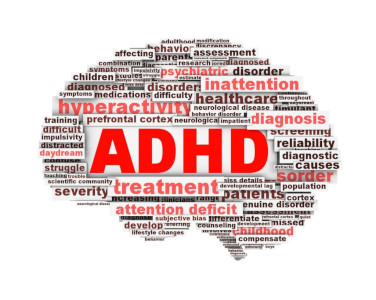ADHD Testing
Summary of Service
The basic components of a stand-alone ADHD assessment include a clinical interview, developmental history, administration of standardized measures, and a report with rendering of diagnosis and treatment recommendations. Standardized measures refer to tests that allow the results to be statistically compared to age-based norms, a very important factor in identifying the presence of ADHD. The process and components of the assessment depend on the age of the client (see below) and complexity of the case.
ADHD Assessment in Children and Adolescents
In the case of children and adolescents, the clinical interview will involve the parent as well. Standardized measures tap self-reports (if the client is an older child) and collateral information provided by parents and teachers. Depending on the complexity of the presenting problem, there may be a need to distinguish between ADHD and some other diagnosis. Among children and teens, ADHD symptoms frequently overlap other conditions (such as depression, anxiety, or a learning disorder), and careful differential diagnosis is needed to determine the correct diagnosis.
ADHD Assessment in Adults
In the case of adults, the assessment process involves a combination of a clinical interview, a standardized self-report, and collateral information from other individuals such as spouses and parents. An accurate developmental history is an essential part of the assessment because a positive ADHD diagnosis requires childhood onset. Depending on the age of the adult client, this may be quite challenging to identify. Parents of an older client, for example, may not have accurate recollections of childhood symptoms, they may be deceased, or there may be other problems in taking an accurate developmental history. Also, as with children and adolescents, differential diagnosis can be quite challenging since ADHD symptoms overlap those of other disorders. Nevertheless, with multiple sources of objective and subjective data and careful differential diagnosis, a reliable clinical picture can be obtained.
What About Medication?
Dr. Kwee does not conduct medication evaluations or prescribe medication as he is a Registered Psychologist. Assessments for medication are conducted by GPs and psychiatrists, who often use the findings of the ADHD assessment report as the basis for prescribing. However, medication is not always essential in the management of ADHD if there are other self-management strategies that can be employed successfully. The client should discuss with his or her health care provider the appropriateness of a course of medication in the management of ADHD symptoms.
How much does an ADHD Assessment cost?
The cost of an ADHD assessment is $1,840. This is benchmarked to 8 hours of clinical time including the clinical interview, standardized testing, scoring and interpretation, report writing, and the feedback session. The cost includes a report detailing findings and recommendations.
Our ADHD Assessment Psychologist

Dr. Alex Kwee, R.Psych.
As an experienced clinical psychologist, I devote my work to helping people build resilience, heal the wounds of their psyche, and live meaningful lives. I do this through evidence-based psychotherapy integrated with an existential-spiritual approach…
Request More Information
Please fill out the form below to request more information about our services, or kindly call us at (778) 668-1906.
